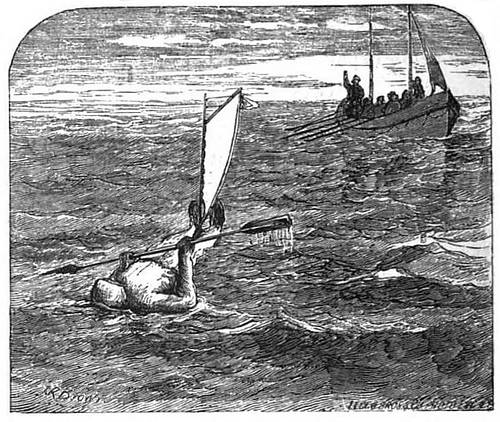
In June 1875, Paul Boyton, “the fearless frogman,” crossed the English Channel enclosed in “Merriman’s Life Preserving Dress,” an inflatable rubber suit designed to float 300 pounds. “Over 1500 persons had assembled on the piers,” reported the Science Record, “and the house-tops in the vicinity were covered with spectators.”
The remarkable suit carried provisions for nine days, and “it is impossible for the body to sink, or, however tossed by a rough sea, to be thrown face downward.” Far from it: Boyton showed crowds how a floating man could display a flag, dispatch a carrier pigeon, build a raft, smoke, read, fish, cook, and shoot.
Ironically, he dazzled his way right out of the record books. Because the miraculous equipage included a sail and a paddle, Boyton’s feat scarcely counts as swimming, and credit for the first channel crossing today generally goes to Matthew Webb, who swam from Dover to Calais two months later the old-fashioned way.



